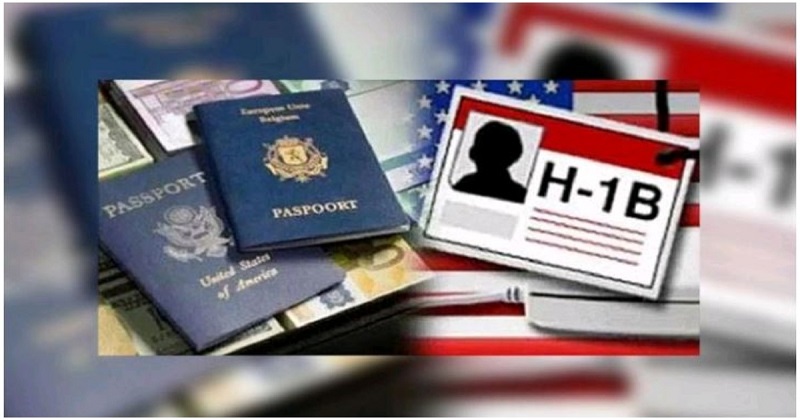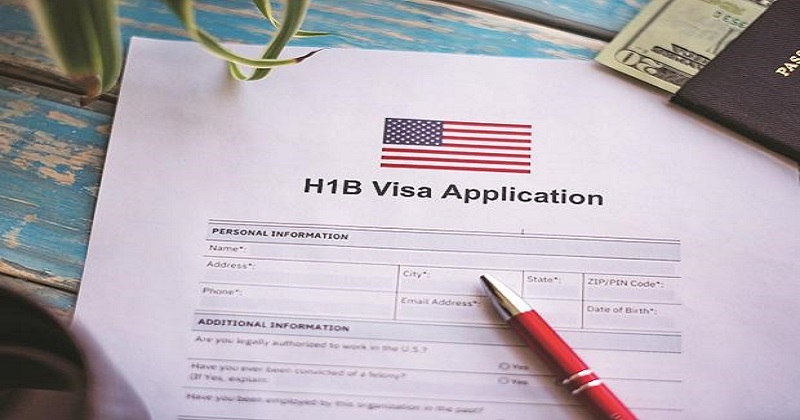
The announcement made by The United States on Thursday states the modified selection process for an H-1B visa, that gives priority to the salary and skills of the applicants instead of the current lottery procedures. The ultimate decision regarding the rule that is to be published in the federal register on January 8, officials said, is aimed to protect the economic interests of US workers as well as the highly skilled foreign workers who should benefit from the temporary employment program.
Technology companies depend on The H-1B visa, a non-immigrant visa, to hire foreign workers in specialty occupations that require theoretical or technical expertise. N number of expert employees are hired each year from countries like India and China. The US Citizenship and Immigration Services trusts modifying the H-1B cap selection process will encourage employers to offer higher salaries, and/or appeal for higher-skilled positions, and in turn, achieve a better and higher graph in their business and remain globally competitive. The finalized order will come into effect 60 days after its publication in the Federal Register. The next H-1B visa filing season is decided to start on April 1.

“The H-1B temporary visa program has been exploited by employers firstly seeking to fill entry-level positions and lessen overall business costs,” said USCIS Deputy Director for Policy Joseph Edlow.“The current H-1B random selection process makes it arduous for businesses to plan their hiring fails to leverage the program to compete for the best and brightest international workforce and has predominantly resulted in the foreign labor placed in low-wage positions at the expense of US workers,” he said.
This modification in the rule will only affect H-1B registrations (or petitions, if the registration process is suspended) submitted by prospective petitioners seeking to file H-1B cap-subject petitions. It will be executed for both the H-1B regular cap and the H-1B advanced degree exemption, but it will not change the order of selection between the two as established by the H-1B registration ultimate rule, USCIS said. The Department of Homeland Security had earlier published a notice of proposed rulemaking on November 2, 2020. It thoroughly considered the public reviews before deciding to publish the proposed regulations as a final rule, USCIS said.
According to the final rule, a variant of which was released by The Department of Homeland Security, a registration system that faithfully fulfills the Immigration and Nationality Act (INA) while prioritizing registrations based on wage level within each cap will incentivize H-1B employers to offer higher wages or to petition for positions demanding higher skills and higher-skilled immigrants that commensurate with higher wage levels, to increase the probability of selection and eligibility to file an H-1B cap-subject petition. Moreover, it will maximize H-1B cap allocations, so that they more likely will go to the best and brightest workers; and it will disincentivize abuse of the H-1B program to fill comparatively lower-paid, less-skilled positions, which is a vital problem under the present selection system, it said.
“While conducting a random lottery system is reasonable, it is inconsiderate of Congress’s statutory purposes for the H-1B program and its administration,” said the final law. The changes in this final rule will apply to all registrations, including those for the advanced degree exemption, submitted on or after the effective date of the final rule. According to Congressional-mandated cap, USCIS in one year can issue a maximum of 65,000 H-1B visas. It can also issue another 20,000 H-1B visas to those foreign pupils who have finished higher studies from a US university in STEM subjects.
During the public notice period, the department said, several commenters showed support for the rule as this will put an end to visa fraud, abuse, and flooding of petitions by certain staffing or consulting companies. One commenter said the proposed rule would stop companies from abusing the H-1B program and harming US workers. Other commenters said the proposed rule would reduce potential visa abuse by employers and make sure all workers were rewarded according to their skillset as employers no longer would be able to lower labor expenses by hiring foreign workers. Another said that the proposed rule would have a positive impact on US employees and college-educated US citizens who take loans for their education. The rule will make it harder for technology companies to discriminate against US citizens; US workers are being deprived of opportunities because corporations are outsourcing to make profits, and the proposed rule is necessary because Indian corporations are acquiring US jobs, it said.

Post Your Comments